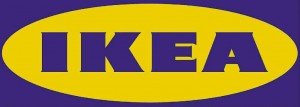Building national and local brands driven by stages of family business
Seventy to ninety percent of the world’s annual GDP come from family businesses, according to the international family research enterprise academy and Family Firm Institute Inc .
A family business has one or more families with a substantial controlling share and active participation in the overall direction of the business. Many of the world’s largest family-run businesses are global brands like Wal-Mart (US), Marriot Hotel (US), L’Oreal (France), Walter Steiger (France), Ferragamo (Italy), Samsung (Korea), Ikea (Sweden), H&M (Sweden), Tata (India) and Toyota (Japan).
The Philippines has its share of successful family business oligarchs driving several local industries. These include the Gokongweis with extensive interests in food, retail, airlines, banking, hospitality, power generation, publishing, livestock, property development; the Sy family with retail, banking, leisure, property development, mining, healthcare, education; the Tan family with tobacco, rum and beer, banking, education, property development, airlines, hospitality, hog-raising; the Ty family with banking, real estate, automotive, insurance and power generation; the Ayala family with property development, telecommunications, retail, banking, automotive, water and power generation utilities, business process outsourcing; the Aboitiz family with banking, power generation, integrated transportation and logistics, leisure/resort and property development, food production, construction and shipbuilding.
These families’ contribution to the local branding landscape include SM, BDO, Metrobank, Robinsons, Globe, Ayala Malls, Hope and Winston cigarettes, Beer na Beer, among others.
Worldwide, common among successful businesses is the family’s ownership of national and/or global brands that have been developed, built, managed and sustained as the founding business went through different stages of family business development.
Article continues after this advertisementResearchers Capon, Berthon, James, Hulbert, Pitt et al. in an article written in the European Management Journal reveal that “properly managed brands are essential to creating good business performance.” According to their finding, and validated by actual failed and successful businesses and brands, “it is important to take in mind that brands have long-term value, yet what may take many years to develop can be quickly lost through inappropriate managerial decisions.”
Article continues after this advertisementStages in family business development
John L. Ward, a leading clinical professor and expert in family business and author of several books on the subject, offers that family businesses go through the same predictable stages. Complementing this insight is a three dimensional development model of family business ownership by Gersick, Davis, Hampton and Lansberg, authors of the Harvard Business School published book, Generation to Generation citing three stages of family business development and ownership: (1) Controlling owner or ownership by one individual or a couple; (2) a partnership between siblings (3) collaboration among cousins called the cousin consortium.
The first stage is often challenged by the owner’s willingness to relinquish control and the ability to pass the baton to a competent successor. The second stage is marked by innate pressure among siblings to revitalize and grow the business to heights not achieved by the founder, not to mention the challenge of maintaining teamwork among siblings. The third stage calls for greater teamwork and cohesiveness among different branches of the family as well as passionate commitment among family members who are active in the business.
When do family businesses break up?
A distinct quality of family businesses is its ownership where founding owners have the prerogative and capability to pass a business from one generation to the next generation of family members. Nonetheless, a Boston-based Family Institute research reveals that only one-third of all family businesses are passed on successfully to the next generation indicating that many family businesses fail to succeed past the third generation. This insight has been validated by previous academic researches mounted by Beckhard et al. in 1983 and Aronoff, et al. in 1999 that “a rule of thumb is that only one out of three family businesses survives to the next generation.”
Some of the reasons include: (1) Lack of a founder’s brand vision and tenacity to take the family business through inter-generational transition—most family businesses came about as a matter for survival and simply a means to put food on the table.
Only family founders who wish to leave a legacy from one generation to the next have driven many successful businesses. The brand icon Ferragamo, founded by Salvatore Ferragamo, began as a boot shop in Hollywood in 1923. Ferragamo made shoes for Hollywood movie stars like Joan Crawford and Marilyn Monroe. Salvatore’s vision is hinged on making durable and excellent shoes using innovative designs and materials. He has been credited with the wedge heels, invisible sandal, metal stiletto heels and soles. Today, Ferragamo is an Italian luxury goods company selling shoes, leather goods and ready to wear apparel for men and women. Ferragamo is one of the brands credited with having a museum, the Salvatore Ferragamo Museum in Florence, Italy. The brand’s staying power is attributed to the founder and his family’s investment in building an iconic brand that stands for artistic quality, durability and comfort.
Nonetheless, having a brand vision is not restricted to the founder. Sometimes, a sibling in the second stage or third generation heir propels a family business to become a brand icon.
(2) Family politics and relationships—as family businesses are turned over to the next generation of siblings, the number of owners increases due to rise in family branches caused by inheritance and marriages into the family. These new owners have varied expectations, skills, interests and beliefs in how the business must run. Too often, conflict and complex relationships arise. Often, an exit strategy becomes the best alternative.
(3) Difference in skills set —when members of the family simply milk the business, the death of the business cannot be avoided. Peter Drucker, world-respected management guru, often cites the importance of marketing and innovation as drivers of business.
When members of the family business believe that their role in the company is a privileged right borne by lineage rather than earned, therein comes the problem. The family business becomes a playground, a crutch to status and symbol of social power. In this scenario, successful marketing and branding as well as innovation can never materialize.
What makes a successful family business?
Desire to build, manage and sustain the founder’s vision by propagating a national brand vision and heritage. Visionary founders are keen on passing a legacy. The business becomes an extension of their persona, acquiring an identity unique to the values they represent. These values, the founder seek to propagate. And so a family business turns from a commodity into a national brand and eventually a global brand. Phil Knight, chair and co-founder of brand icon Nike, named his line of athletic shoes and gear after the Greek goddess of victory and a winged deity capable of moving at high speed. Young, athletic image endorsers further reinforced the brand’s identity at the prime of their career. These included Michael Jordan, Lebron James, Tiger Woods, Andre Agassi, Kobe Bryant.
Today, Nike is a leading athletic global brand, far from the founding days of Knight in 1964 when he sold Japanese running shoes from the trunk of his car.
On the local front, The Generics Pharmacy, now the largest drugstore retail chain with 1,500 branches nationwide, had its roots in 1941 as a generics drug wholesaler. It was the second stage son, Benjamin Liuson, who propelled the business into greater heights when he expanded the business in 2007 into retail and franchising. Today, The Generics Pharmacy, is a national retail pharmacy brand selling generics medicines that are safe and effective as branded medicines under its own private label, TGP.
Work toward family cohesiveness behind a skilled and good governance leader in the family. When family business members sit on the board and/or are active participants in various functional departments, there is a need to pull toward one direction. Conflict must be resolved. Even among branches of families, there must be wholehearted trust in the family leader, who must likewise be skilled, highly objective, practices good governance and has a passionate desire to continue family business tradition. After all, this family leader is tasked with a most important role to take the business and the brand to national and even global scale as well as through inter-generational transition.
In cases where the skills set is lacking, third party expert advisers in their field are called in to guide the Board and family members particularly in managing strategy and implementation.
Long-term vision drives successful family business more than short-term returns. What separates the men from the boys in family businesses is the desire and tenacity to establish long term value for the family business and its brands. From one generation to the next, successful brands invest in intangible and tangible assets like branding, continuous innovation and proprietary technology, a culture of product or service excellence and quality as well as customer loyalty. Family businesses with successful inter-generational brands shy away from short-term volume and depressed margins and sustain their businesses through brands, innovation, revitalization and profitability.
The author is chief brand strategist at MKS Marketing Consulting and will soon complete her post-doctoral Executive Education advanced Strategic Marketing Management course at the Stanford Graduate School of Business in Silicon Valley, USA. E-mail at [email protected].

